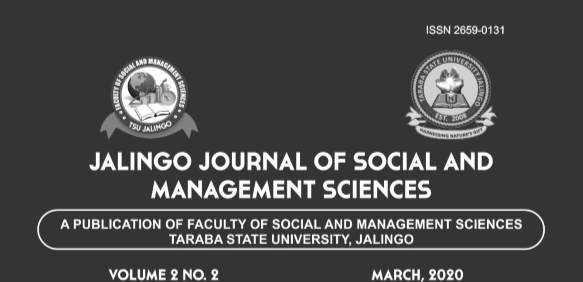Project Management and Evaluation: An Approach for National Development in Nigeria
Keywords:
Evaluation, Monitoring and Implementation, National Development, Project ManagementAbstract
The objective of this paper is to x-ray some of the tools in project management and evaluation and to determine the best suitable ways by which project management and evaluation can be achieved to bring about a continuous developmental change. The problem of project management therefore is not about conceptualizing policies, but rather, it is all about effective management of project monitoring, evaluation and implementation which has been observed to have been less than satisfactory. The methods adopted for the collection of data for this paper was secondary sources. The findings indicate a high rate of abandonment as soon as the contractors and the officials make sufficient money out of a project, or as soon as phase of a project is completed and in some cases, when mobilization fee is paid. In addition, some managers do not undertake detailed evaluation of a project either after it has been completed or at appropriate point during the implementation process. In conclusion, project managers should take the project cycle as an important framework and tools which can applied at each stage of the project cycle. Hence from our findings above, for a manager to effectively monitor and evaluate a project towards achieving its desired objectives, the following major recommendations subsist. That monitoring and evaluation of projects calls for training of staff regularly on the art of project management; second, management should take monitoring and evaluation exercises as a continuous exercises for that is the only way the course of project implementation can be determined and third, staff engaged in project monitoring should be paid extra moneys to motivate them and to reduce the incidence of corruption.

Downloads
Published
Issue
Section
License
Copyright (c) 2023 JALINGO JOURNAL OF SOCIAL AND MANAGEMENT SCIENCES

This work is licensed under a Creative Commons Attribution-NonCommercial 4.0 International License.
